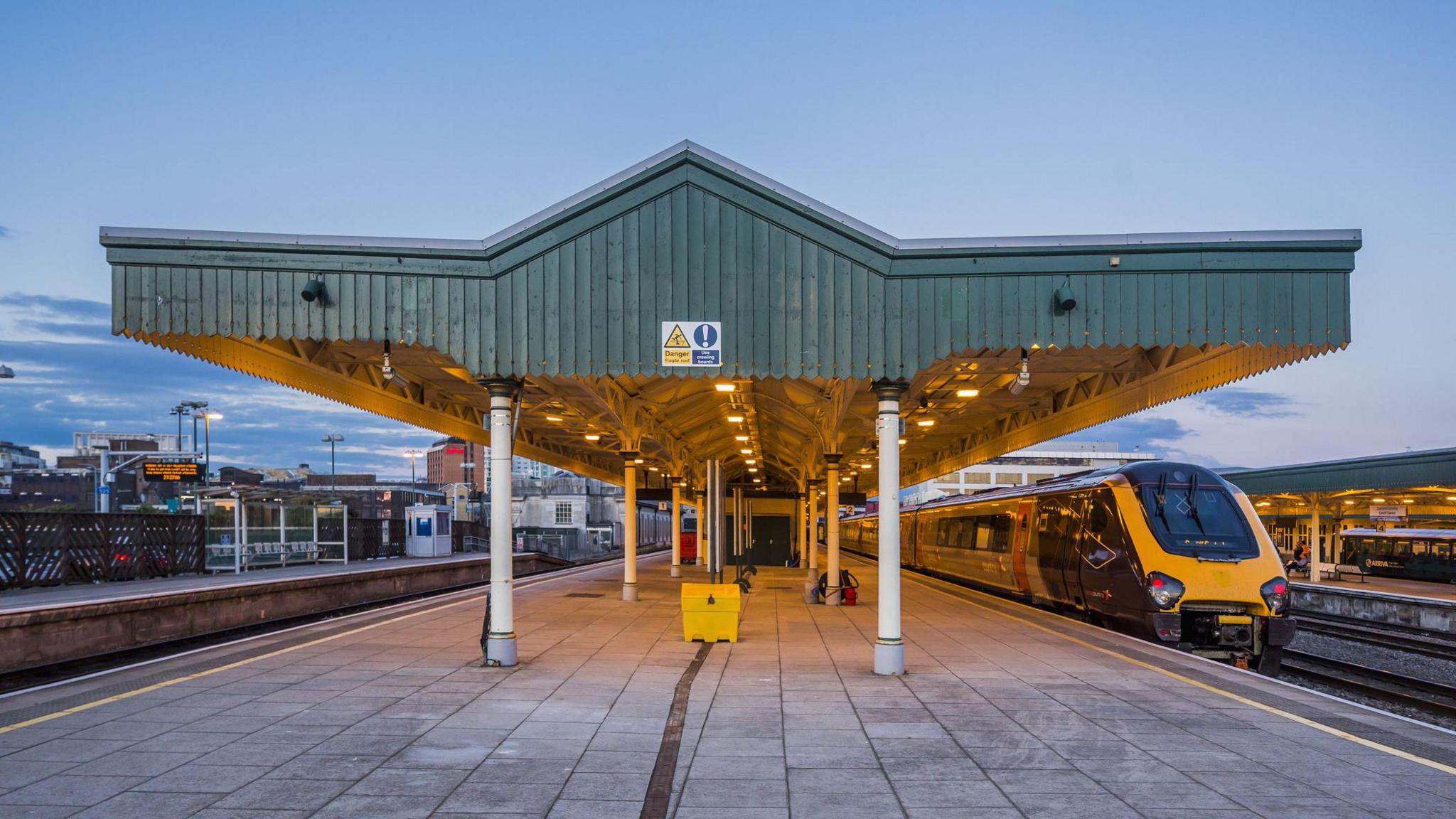Plans for new tram in Wales' capital city revealed
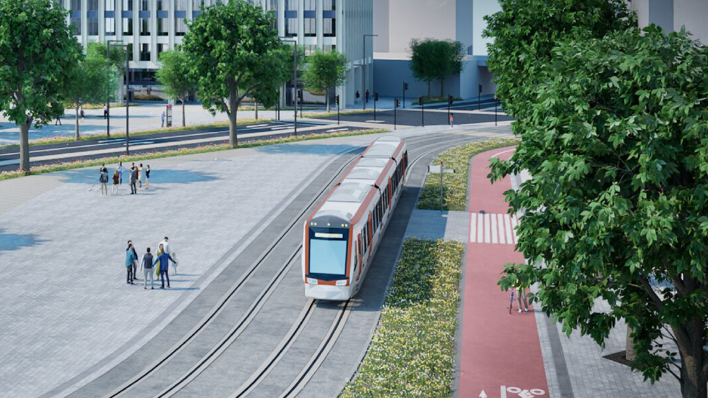
An artist's impression of the first phase of Cardiff Crossrail, connecting Central Station with Cardiff Bay
- Published
Plans for a new tram that could eventually stretch across Cardiff have been revealed.
It is hoped that the first stage of Cardiff Crossrail, connecting the city's central station with the bay, will be built by early 2029.
Cardiff council, which is working with Transport for Wales (TfW) to build the tramway, said Crossrail would eventually connect "some of the most deprived communities" in the city.
People are being asked to share their views on the plans as part of a consultation, which runs until the end of October.
What is the South Wales Metro and when will it be done?
- Published31 May 2024
Train services 'simply inadequate' after big events
- Published4 May 2024
"Subject to funding, the Cardiff Crossrail will eventually run from the north-west of the city all the way to the east of the city connecting with the proposed Parkway railway station," council cabinet member Dan D'eath said.
"To start this process, the first phase of the scheme must be built between Cardiff Central and Cardiff Bay."
What is Cardiff Crossrail?
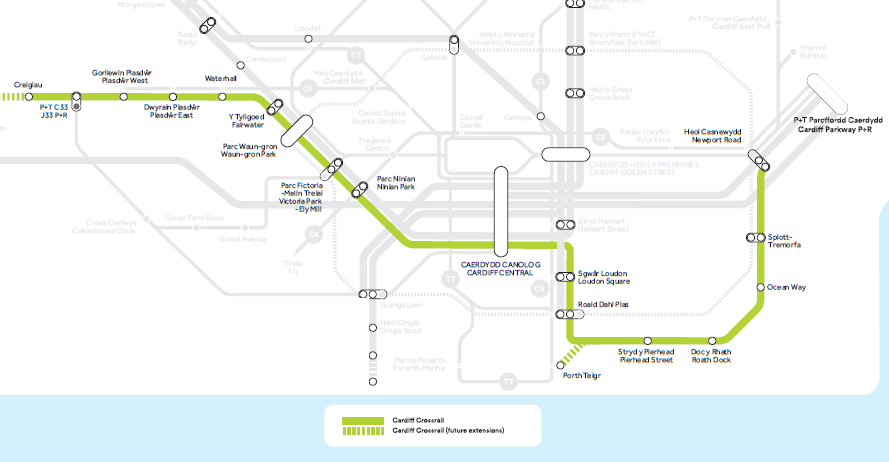
A map shows the proposed route of Cardiff Crossrail, as laid out in 2019
Like its London namesake, Cardiff Crossrail is the name of a plan to build a light-rail route through the middle of the Welsh capital.
It is intended to stretch from the village of Creigiau, in the north-west, to Newport Road in the east.
If Cardiff Parkway in St Mellons goes ahead, the plan is to extend Crossrail to incorporate that too.
So far, only the first stage of Crossrail has secured funding, which connects Cardiff Central station with Cardiff Bay by rail for the first time.
This will involve building a new two-platform stop in the rear car park of central station.
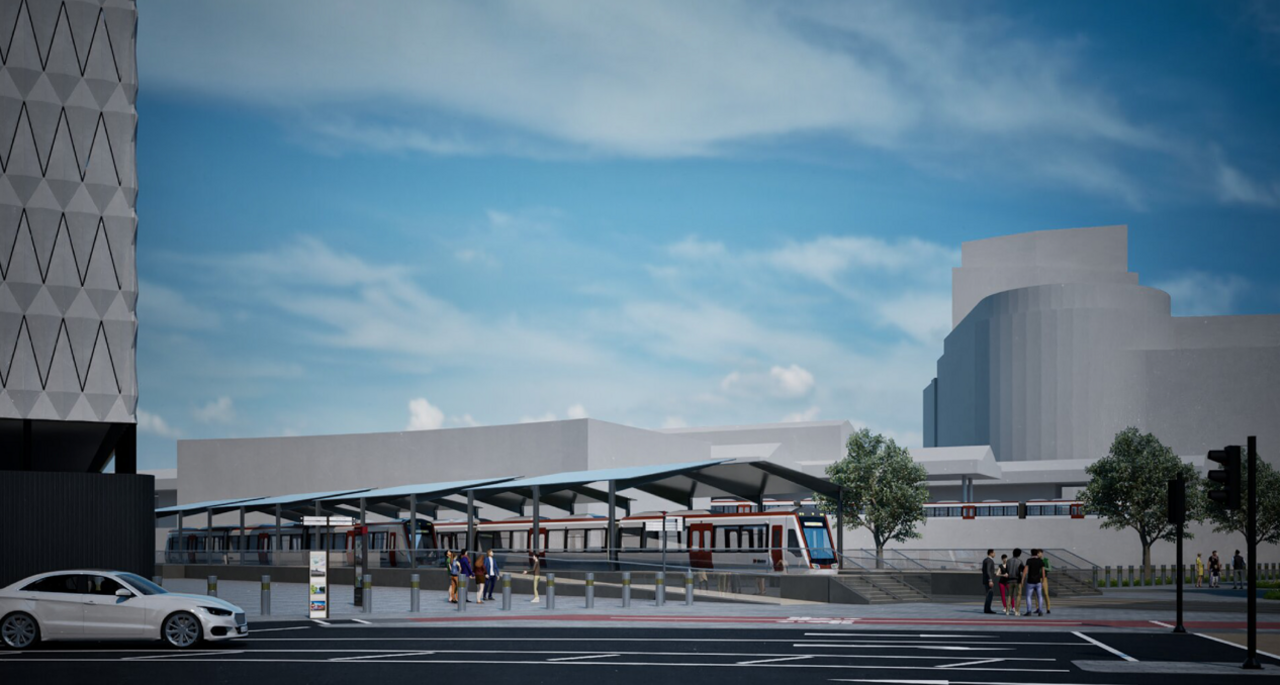
An artist's impression of the proposed new platform for the tramway in the southern car park of Cardiff Central station
The tramway will then be built through Callaghan Square before joining up with the existing railway line to Cardiff Bay station, where an extra platform will be built.
Subject to more funding, it would then go east to a new station at Pierhead Street, near the Senedd.
The long-term aim is for it to be 17 miles (27km) long, with 18 stops including the 7,000-home Plasdwr development, a new park and ride near the M4's Cardiff West services, Tremorfa and Splott.
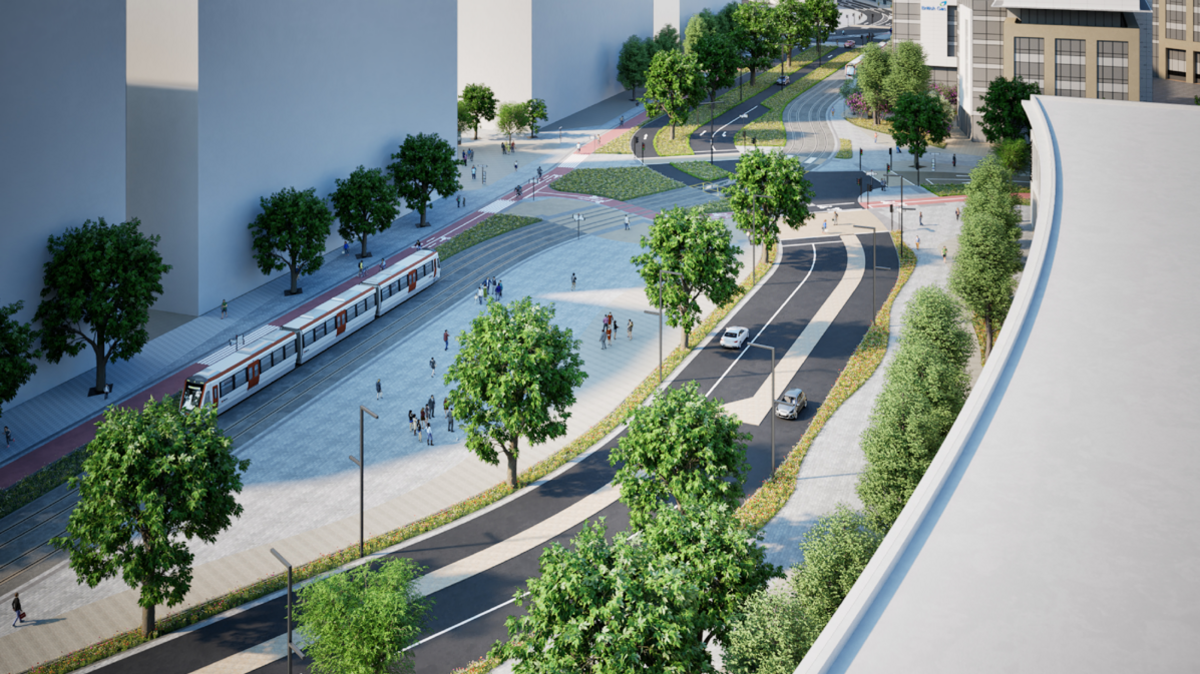
An artist's impression of the tramway's proposed route through Callaghan Square
Prof Mark Barry, who has been involved with the scheme since it was first suggested in 2011, said the first stage was a "great starter", but "doesn't cut the mustard" on its own.
"The real benefit is when you connect this line to the west, because that will improve the capacity of the whole South Wales Metro and provide much more capacity, resilience and reliability in the core of the network," he said.
When will Cardiff Crossrail be built?
Construction of the first phase is hoped to begin in autumn 2025, external and developers are aiming to have that section up and running by late 2028 or early 2029.
There is no timeline for the wider Crossrail project.
How much will Cardiff Crossrail cost?
£100m has been raised to support the first phase, including £50m from the UK government's Levelling Up fund and £50m from the Welsh government.
The cost of the full Crossrail project is unclear, although in 2019 the city council referred to the plans as a "£1bn transport vision".
Is Cardiff Crossrail part of the South Wales Metro?
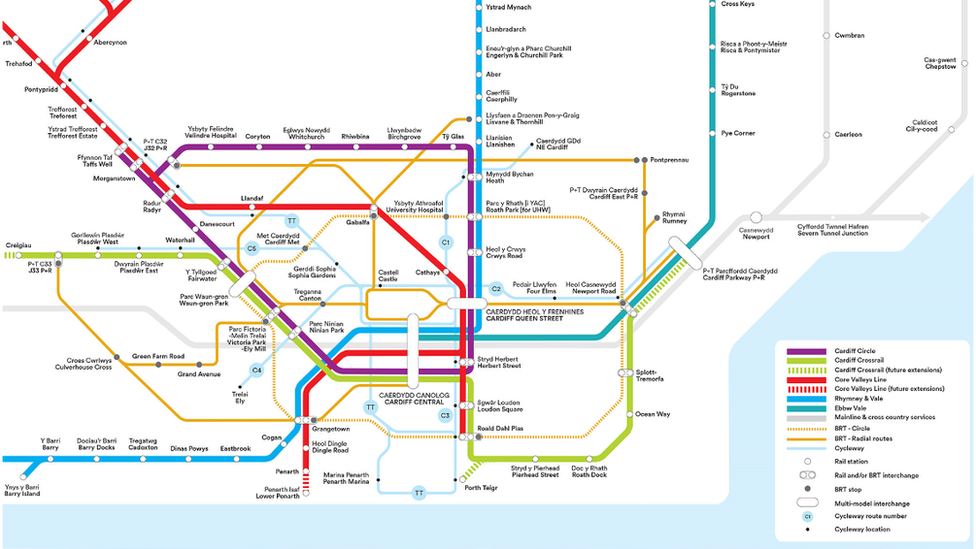
The planned Cardiff Crossrail, in green, together with the wider South Wales Metro
The South Wales Metro is focused on improving public transport between Cardiff and the south Wales valleys.
TfW said Crossrail was "fully aligned" with Metro plans, but its aim is to improve connectivity across the Welsh capital.
Longer term, Cardiff council also wants to create a Circle Line, building a new connection between Radyr and Coryton stations - creating an orbital railway around the city.
This would also connect a new park and ride near junction 32 of the M4 with Velindre Cancer Centre in Whitchurch, but this project has no funding or timeframe.
"A city of soon to be 400,000 people will be operating on a transport system built to serve a much smaller population," the council said in its 2019 transport white paper, external.
What are the plans for a new arena in Cardiff Bay?

The planned new indoor arena in Cardiff Bay would be built on the site where the Red Dragon Centre sits
The hope is that Crossrail will improve connectivity to a new £250m indoor arena, which is set to be built on the site of the Red Dragon Centre in Cardiff Bay.
Preliminary ground works began on the 15,000-capacity venue, external in January with a planned opening date of summer 2026, external.
Has Cardiff had trams before?
Cardiff had horse-drawn trams as far back as 1872 and, by the early 20th Century, there were more than 100 electric trams operating throughout the city.
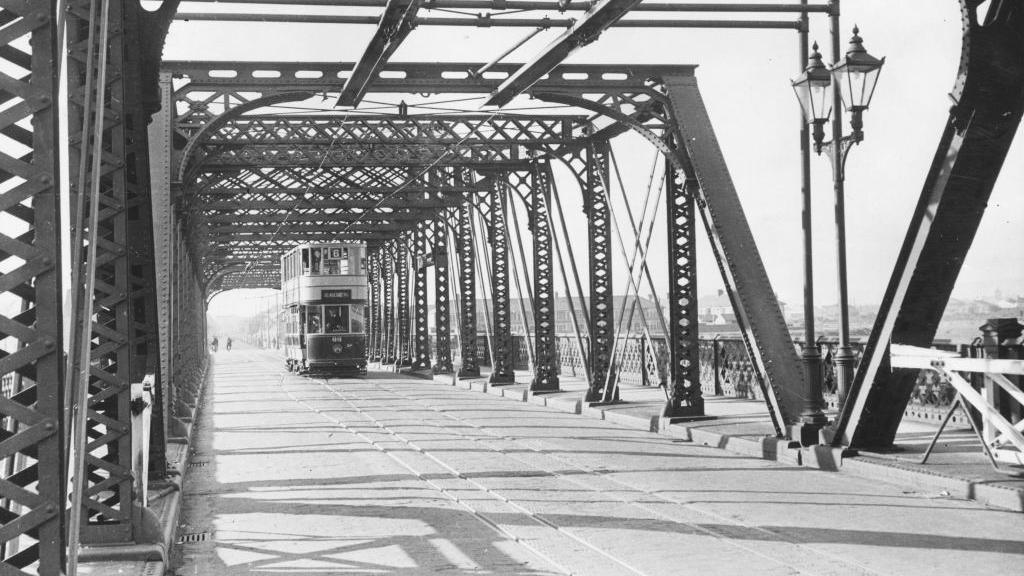
A tram crossing a swing bridge over the River Taff in Cardiff, in about 1940
Initially, the old network focused on Cardiff's busy docks area but, by the late 1920s, trams linked Victoria Park, Grangetown, Roath, Splott and Gabalfa to the centre and the docks, carrying more than 40 million passengers a year.
In 1950, the trams were replaced by electric trolleybuses, which ran in the city until 1970, external when motorised buses took over.
Remember the plans for driverless pods?
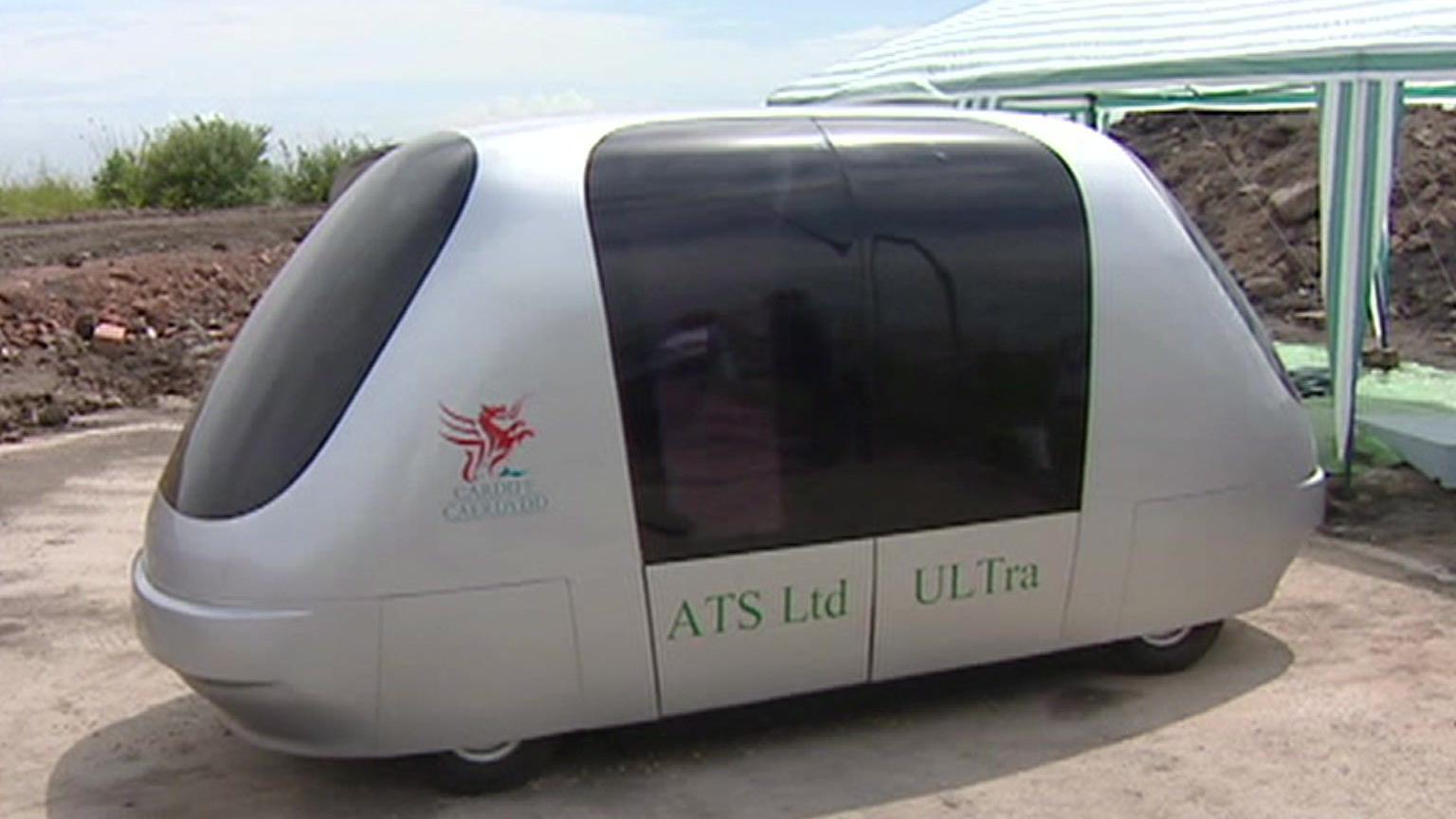
Cardiff's proposed driverless pods would have travelled at up to 25mph (40km/h), with passengers using smart cards to select their destination, paying £1 per ride
There have been discussions about connecting Cardiff's popular waterfront with the city's central station for more than 20 years.
Back in 2002, the council announced a £45m plan to create a system of futuristic driverless taxis.
The proposed Ultra cabs, made of glass fibre pods, would have run on an elevated track system.
But the scheme was halted after Welsh ministers said they would not financially support the scheme.
Similar driverless vehicles now carry passengers between the main building of London Heathrow Airport's Terminal 5 and its business car park.
Related topics
- Published31 May 2024
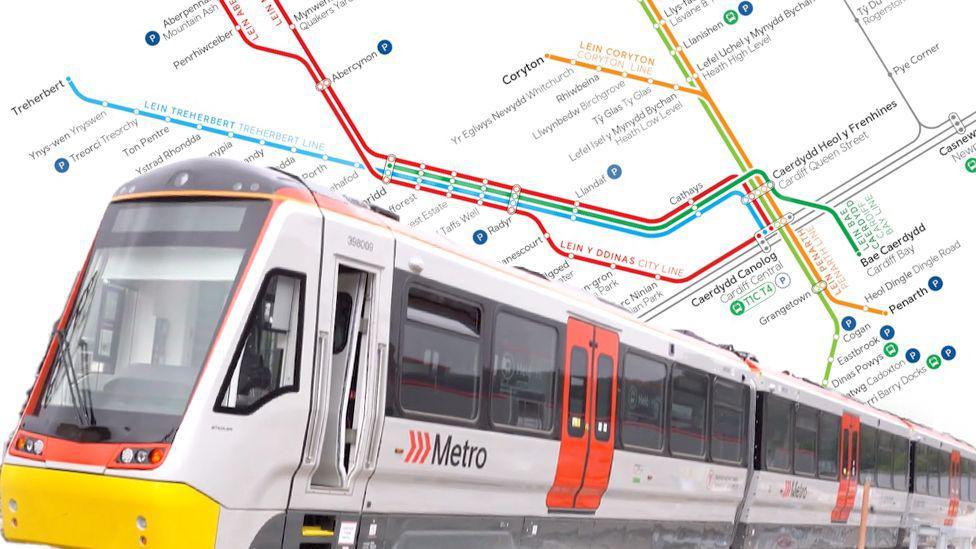
- Published27 May 2024
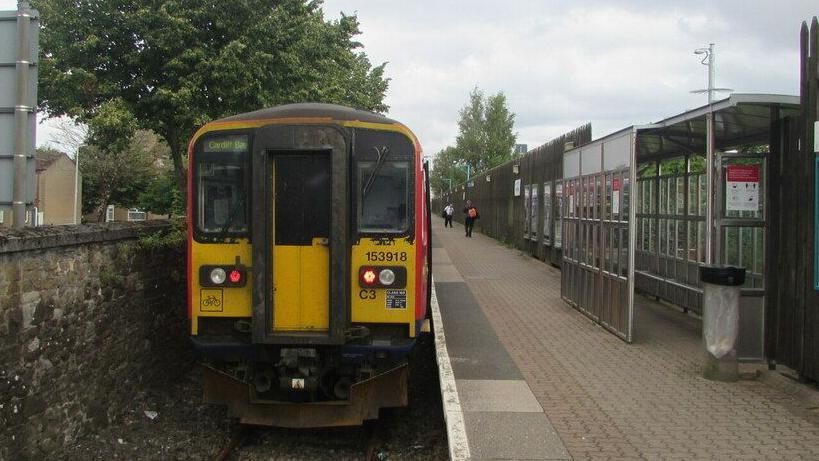
- Published30 May 2024
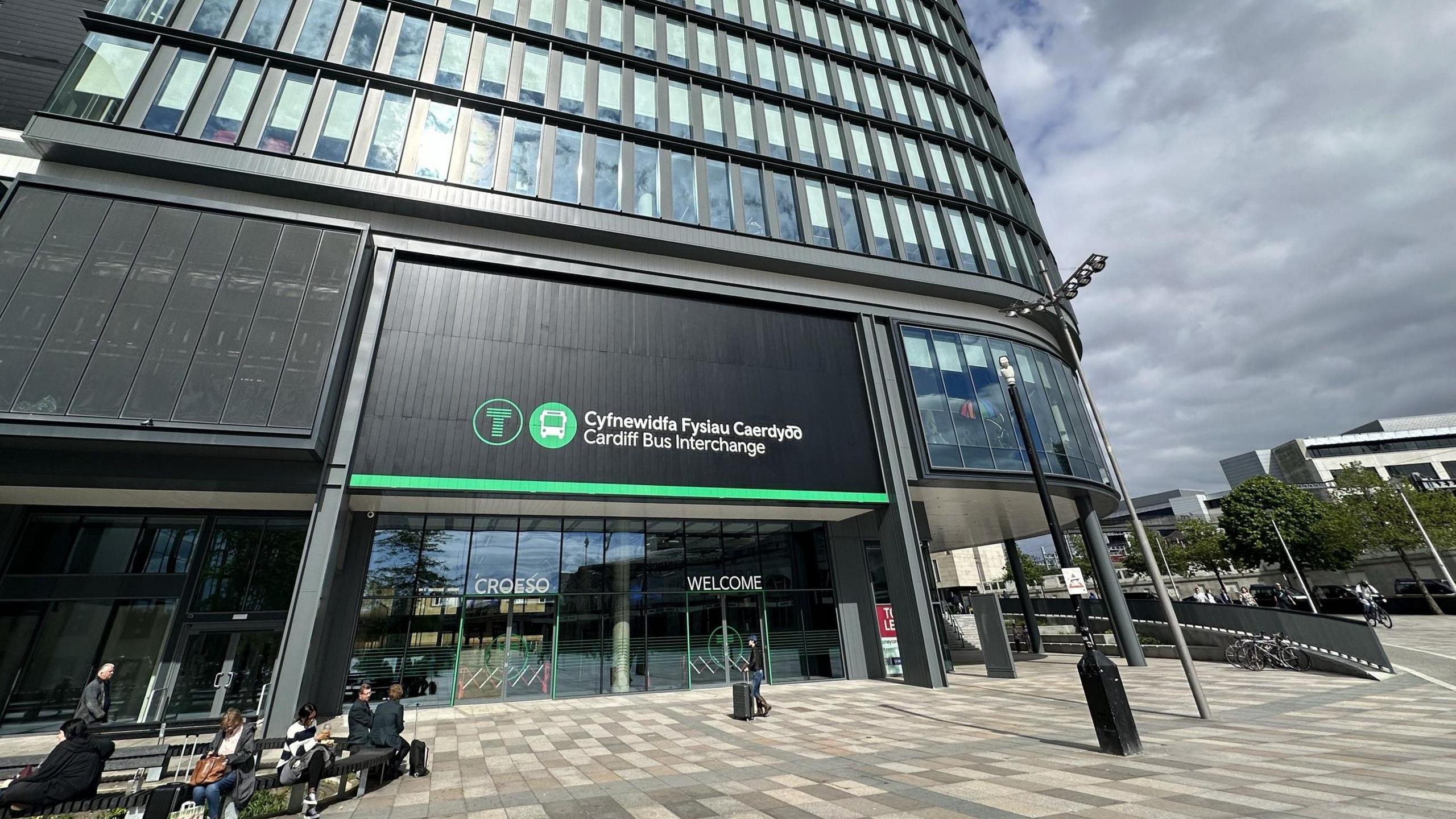
- Published15 August 2024
